DCPA NEWS CENTER
Enjoy the best stories and perspectives from the theatre world today.
Enjoy the best stories and perspectives from the theatre world today.
The Denver metro area has blossomed into a vibrant cosmopolitan center with a diverse economy, high educational attainment, and a thriving cultural scene. Its cities regularly appear on lists of best places to live in the US. Its population is well informed and engaged. In honor of Women’s History Month, we are profiling women from several different industries who have played and continue to play a part in shaping Denver’s identity. These, and thousands of women like them, all contribute to Denver’s status as a diamond of the West.
Click on the photos below to learn more.
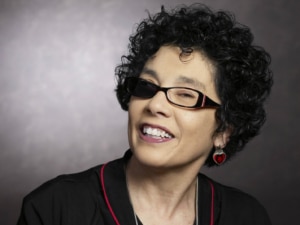
Denver’s dynamic media sector is the 17th largest in the country and includes more than 30 FCC licensed radio stations. In 1982, Flo Hernandez Ramos, dedicated to making the lives of Latinos in Denver more significant and cultivating greater appreciation for their contributions to the community, helped to establish KUVO Public Radio Station. When market research revealed that the majority of the Denver Latiné community primarily spoke English, the original vision of operating KUVO as a Spanish language station evolved to operating bilingually (Spanish/English); broadcasting Jazz, Latin Jazz, and Blues music; and offering culturally diverse community-oriented programming.
Over the course of her 25-year tenure with KUVO, in which she in turn served as its General Manager, CEO, and President, Ramos came to understand “how media shapes the consciousness and perception of a people.” And she has by promoting diversity and a positive picture of communities of color. As KUVO prepares to celebrate its 40th anniversary, Ramos says, “I would like to see us continue on the same path — sharing the power that we have and sharing the brilliance of the communities we live in and among.”
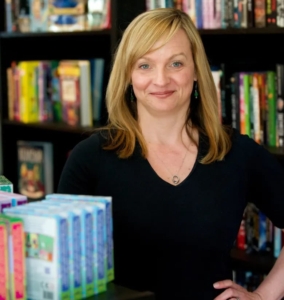
The metro area’s business sector is diverse and wide ranging and Denver provides significant support and resources to small businesses. In 2013, Nicole Sullivan’s involvement with the North Denver Community Book Exchange prompted her to seize the opportunity to open The Book Bar. “I’d had a vision for several years about a bookstore/wine bar combination,” she says. She feels that the best way to promote success in this industry is to figure out how to own your own property. “If you don’t control your own rent,” she says, “you can’t really control the future of your business and for a bookstore that’s just devastating.” The Book Bar quickly became a Denver icon, operating as a “third space where people can gather outside of home and work to meet other people and build community.”
Rising expenses forced her to close The Book Bar in 2023, but Sullivan is now the owner/operator of The Bookies bookstore, a 50-year Denver institution. Her commitment to establishing a place for readers to gather remains unchanged. “Spaces where people can come together are incredibly important for community cohesiveness, for building partnerships, building friendships. That’s the future of bookstores and Denver.”
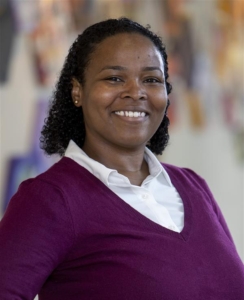
Many consider Colorado to be one of the healthiest states in the United States and, according to WalletHub, Denver and Aurora are two of the healthiest cities in the country. Nevertheless, there are significant health disparities in Colorado, especially in terms of access to care, infant mortality, and maternal mortality. According to Dr. Shaleah Dardar of the University of Colorado Hospital, additional disparities in mental health care occur for several reasons including access in general to mental health services and stigma.
Dardar addresses these issues in her capacity as program director and co-facilitator of Black Mamas Circle, a free, culturally congruent co-facilitated, peer-to-peer support group for Black/African American mothers in the pregnancy and postpartum period. “It’s important for providers to practice with cultural humility and provide trauma informed care,” says Dardar. The program is culturally responsive, welcoming, and uniquely inclusive to Black women and their babies. She believes its work is an important contributor to the health of the entire metropolitan area. “If you have healthy families, healthy moms, and healthy babies, they help produce healthy communities,” Dardar says.
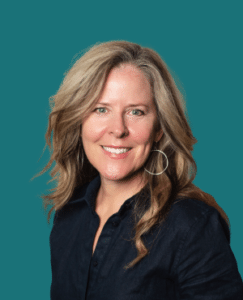
When discussing Arts and Culture in Denver, people often focus on the performing arts or Denver’s many museums and cultural institutions; however, Denver has a thriving literary scene as well and Lighthouse Writers Workshop is a huge part of it. It opened in 1997, but co-founder Andrea Dupree says, “I don’t think we imagined it would take off the way it did.” Since then, it is widely recognized as the established literary hub for the Central Western region of the country. As a result of the COVID pandemic of 2019, the organization’s scope has expanded. The quarantine forced the organization to move its programming online, which had the happy result of introducing it up to writers across the country and around the world. Dupree asserts that it is unapologetically a Denver organization and that fact has been a draw for all kinds of writers. “It’s shaped by collegiality and an unpretentiousness that people appreciate,” she says. “It’s welcoming.”
Dupree serves as its Program Director and is often referred to as the heart of the organization. In 2023, Lighthouse commissioned the construction of its own 3-story, ADA compliant new building in North Denver, complete with elevator and substantial free parking. Moving forward, Dupree underscores Lighthouse’s commitment to promote the benefits of writing to the whole of the Denver metro area and beyond. “We are continuing to learn how to [engage with folks] in a way that includes the community, is directed by the community, and then helps the community. The fact that this is creative writing and art and is accessible to anybody who wants to use it, that’s really powerful.”
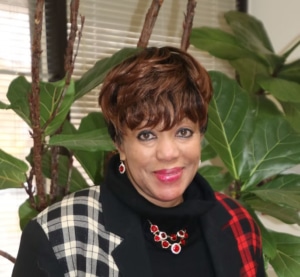
The Denver metro area has a stated commitment K-12 education and addressing inherent disparities in access for underserved populations. As the Director of Gifted Development and the Literacy Specialist at The Hope Center, Brenda Natt is guided by the belief that all children can learn. An educator for more than 45 years, she hates the term “achievement gap,” but acknowledges there are clear educational disparities in Denver, especially for children of color, and that gifted children of color are often overlooked or do not receive the same kind of access to programs and services in schools in their own communities. “Hope Center is where it needs to be,” she says.
Natt was the first teacher hired at the Hope Center and for years was the only black teacher. She is thrilled that the faculty now includes several black teachers with advanced degrees. The Center’s focus is on Early Childhood Education, but Natt envisions programming that would provide ongoing support and mentorship for students as they leave and move through other school systems. She believes that helping children learn creates stronger young people and adults who are better equipped to contribute to the community. “Helping a kid realize they are worth something is more important to me than any paycheck or bonus could ever be.”
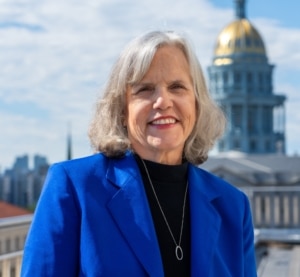
Denver has a reputation for community spirit, voluntarism, and charitable giving. CauseIQ includes more than 18,000 agencies in its directory of non-profit organizations in metro Denver. Anne Byrne has always been service minded and that inclination led her to co-found The Blue Bench (formerly The Rape Assistance and Awareness Program) as Denver’s first comprehensive rape crisis center in 1983; to play a significant role in the creation of the Colorado Coalition Against Sexual Assault; and serve as the CEO of three non-profit organizations, including as the first Executive Director of Scholars Unlimited, a Denver literacy and youth development program. “I haven’t made much money, but I’ve had a really rewarding career,” she says.
After leaving Colorado for a few years, she returned with a new appreciation for Denver’s charitable sector. “Denver’s philanthropic community is pretty unified. It works together and its values are aligned with getting resources to the community.” She adds that it has an “engaged philanthropic and non-profit community and a strong non-profit association.” Years she spent at the Denver Center for Policy Research has also given her a greater appreciation for the role of research and evaluation in non-profit organizational development and how it helps agencies “focus their sparse resources in ways that are most effective.” She has recently transitioned to working for the Colorado Department of Human Services and discovered that government too can be mission motivated. Although many see challenges ahead for the non-profit sector, Byrne believes they create a unique opportunity.” “Non-profits will need to make the case for why we’re important.”
Twanna LaTrice Hill is a teaching artist, actor and director who has published works of fiction and nonfiction and penned two plays that have been produced and performed in the Denver metro area. Princeton/Harvard/Regis educated and a trained Sovietologist, she is currently seeking representation for her first memoir, What’s Done in the Dark.
